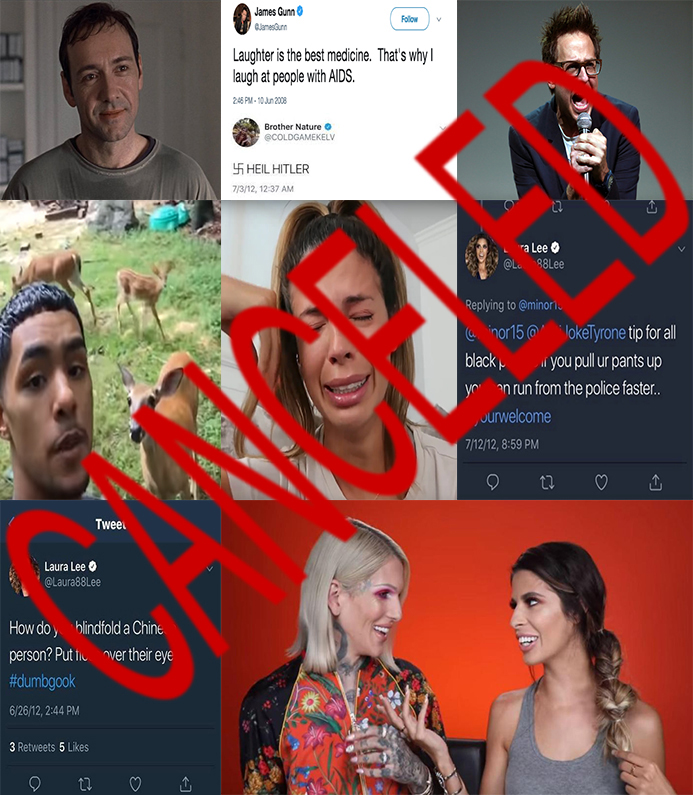It’s time to cancel Twitter’s toxic, problematic cancel culture
Photo illustration by Julissa Rangel
Celebrities like Twitter-famous Brother Nature, Laura Lee, Jeffree Star, Kevin Spacey and James Gunn have been cancelled for exhibiting problematic behavior within the early years of their careers.
November 15, 2018
Within today’s social media era, the private life of celebrities has become almost non-existent as they’re plastered all over various platforms.
Even if their content was to be deleted, nothing ever truly disappears. This especially applies to old mistakes that can be pulled up and exposed at any time, resulting in them being “canceled” by followers.
This is widely known as “cancel culture,” the act of bringing up the problematic actions of a celebrity or online presence and calling them out for it. Fans criticize them for what they’ve done and ended up retracting support. However, it often fails to create any significant change beyond distracting viewers from the actual point: being educated on why their actions were problematic.
Celebrities must be held accountable for their actions, but cancel culture is a toxic and superficial way to accomplish that.
It has both the potential to impact a celebrity’s reputation and cause professional losses. Tweets made back in 2009 to 2011 referencing controversial topics such as rape and pedophilia caused director James Gunn to be fired from the movie “Guardians of the Galaxy Vol. 3” back in July. While what he said was offensive, the discourse on the topic was more about his reputation than anything else.
American beauty vlogger Laura Lee lost 400,00 subscribers on Youtube ever since racist tweets from 2012 were found by fans. In response, Lee posted a 5-minute apology video on her Youtube that resulted in even more hate from fans. Lee, who recently launched her own makeup company Laura Lee Los Angeles, has lost almost all of her brand sponsorships, including those with Ulta and Morphe.
Social media sensation Kelvin Peña, also known as “Brother Nature,” was ‘canceled’ in late October when racist tweets he posted from when he was 12 resurfaced. Despite his positive content and public apology, explaining his younger self’s personality while also acknowledging past mistakes from which he learned from, Peña was still quickly ‘canceled’ with no question.
The toxicity that’s synonymous with social media is mainly a result of cancel culture. The ability to make mistakes is necessary for people to be able to learn from them, but as people are under fire for it, it hinders that experience.
Sensationalizing the issue does nothing but make the situation worse and drag attention away from the main focus. The conversation instead becomes an intense argument about the person in question and fails to educate them.









